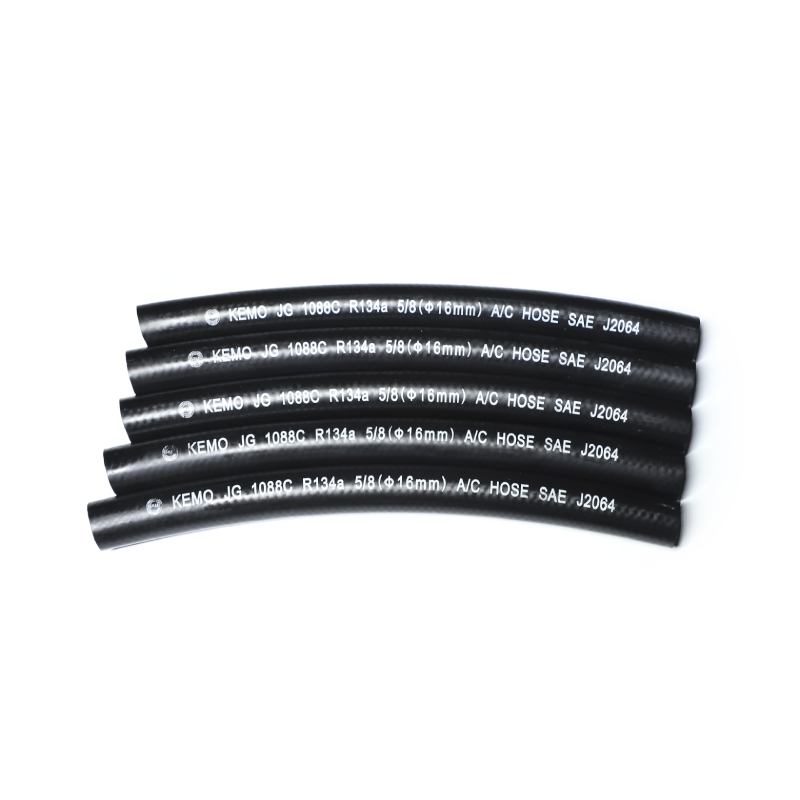Fuel Transfer Hose for Safe and Efficient Delivery of Liquid Fuels
Dec . 02, 2024 05:30 Back to list
Fuel Transfer Hose for Safe and Efficient Delivery of Liquid Fuels
Understanding Fuel Delivery Hoses A Key Component of the Fuel Industry
In the ever-evolving world of transportation and energy, the fuel delivery hose plays a crucial role in ensuring efficient and safe transfer of fuel from one location to another. These hoses are essential components in various applications, including gas stations, fuel tanks, and industrial settings, providing a reliable conduit for petroleum products. This article delves into the intricacies of fuel delivery hoses, their construction, types, maintenance, and their significant role in the fuel supply chain.
Construction and Design
Fuel delivery hoses are typically constructed from materials that can withstand the corrosive properties of petroleum-based products. Common materials include synthetic rubber, PVC, and thermoplastic elastomers, which possess good flexibility and resilience. The hoses also often feature a wire reinforcement layer, providing additional strength and preventing kinking during operation. A smooth inner lining minimizes friction and facilitates the easy flow of fuel, reducing the risk of blockages and pressure loss.
The design of a fuel delivery hose must adhere to strict industry standards to ensure safety and reliability. For instance, hoses must be resistant to abrasion, chemicals, and extreme temperatures. They come in various diameters and lengths to suit different applications, from small gas dispensers to large industrial fuel transfer systems.
Types of Fuel Delivery Hoses
Fuel delivery hoses can be categorized based on their intended use and the fuels they transport
. Here are some common types1. Petroleum Hoses Specifically designed for handling various types of petroleum products, including gasoline, diesel, and fuel oils. These hoses are constructed to minimize permeation and ensure minimal leakage.
2. Chemical Transfer Hoses While primarily used for chemicals, some of these hoses are also suitable for certain fuel types. They often contain materials that offer enhanced chemical resistance.
fuel delivery hose

3. Hydraulic Hoses While not exclusively for fuel, hydraulic hoses are sometimes used in fuel systems where hydraulic pressure is necessary for operation.
4. Specialty Hoses These hoses can include features like heat resistance or anti-static properties, making them suitable for specific environments or types of fuel, like aviation fuel or biofuels.
Importance of Maintenance
Regular maintenance of fuel delivery hoses is paramount to ensure their longevity and safe operation. Over time, hoses can degrade due to environmental factors, such as UV exposure or chemical exposure, leading to cracks and leaks. Users should routinely inspect hoses for signs of wear and tear, including bulges, cuts, or stiff areas.
A well-maintained fuel delivery hose not only prevents accidents, such as leaks and spills, but also ensures that fuel is delivered efficiently. Proper storage is equally important; hoses should be coiled neatly and stored away from direct sunlight and harsh chemicals to prevent premature degradation.
The Role in the Fuel Supply Chain
Fuel delivery hoses are indispensable in the broader context of the fuel supply chain. They facilitate the seamless transfer of fuel from trucks to storage tanks and from tanks to dispensers at gas stations. Any failure in the hose could result in interruptions that affect businesses and consumers alike. Moreover, adherence to safety protocols in using and maintaining these hoses is critical to preventing environmental contamination and accidents, which can have severe repercussions.
Conclusion
In summary, fuel delivery hoses are vital components of the fuel industry, enabling the efficient and safe movement of fuel products. Understanding their construction, types, and maintenance needs is essential for anyone involved in fuel handling. As the demand for fuel continues to grow, so does the importance of these hoses in ensuring the safety and reliability of fuel supply systems. By investing in high-quality hoses and adhering to proper maintenance practices, businesses can optimize their operations while contributing to a safe and efficient fuel distribution network.
